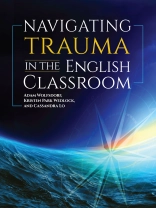Trauma, which has long been buried within the taboos of societal discourse, has recently gained a sense of legitimacy. Statistics from the CDC indicate that trauma is far more ubiquitous than society wishes to accept or acknowledge. And yet despite trauma’s augmented presence within the public discourse, it remains a source of tremendous ambivalence– particularly within schools. In the English classroom, these dynamics may be even more prominent, since instruction related to reading and writing often necessitates that students connect vulnerably to narratives. By exploring how trauma impacts students’ ability to read literature, write, and engage, English teachers will be better prepared when relating to students who get triggered by content that evokes past traumas. For educators of students from grades 9 through college.
A propos de l’auteur
Adam Wolfsdorf is the Humanities Department chair and an original founding member of Bay Ridge Preparatory High School. He is also an adjunct professor at New York University’s Steinhardt School of Education, and a visiting assistant professor in Wesleyan University’s Graduate Liberal Studies Program. Wolfsdorf holds a Ph D in English education from Columbia University, where he served as the coordinator of the INSTEP master’s program. He has published extensively in Changing English, The F. Scott Fitzgerald Review, English Education, English Journal, and The Columbia Literary Journal. Wolfsdorf has book chapters in Humanizing Grief in Higher Education(Routledge) and Deep Reading, Volume 2 (Peter Lang). Outside of the English classroom, Wolfsdorf has performed professionally for 25 years. He appeared in the national tours of the Broadway musicals RENT(with Neil Patrick Harris) and Grease. He also fronts the nationally touring rock band, The Energy (MTV, NBC, ABC, and ESPN). Wolfsdorf earned his master’s degree in psychology and education from Columbia University, and holds a bachelor’s degree in English from Harvard University.












